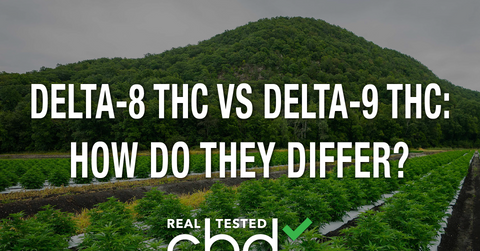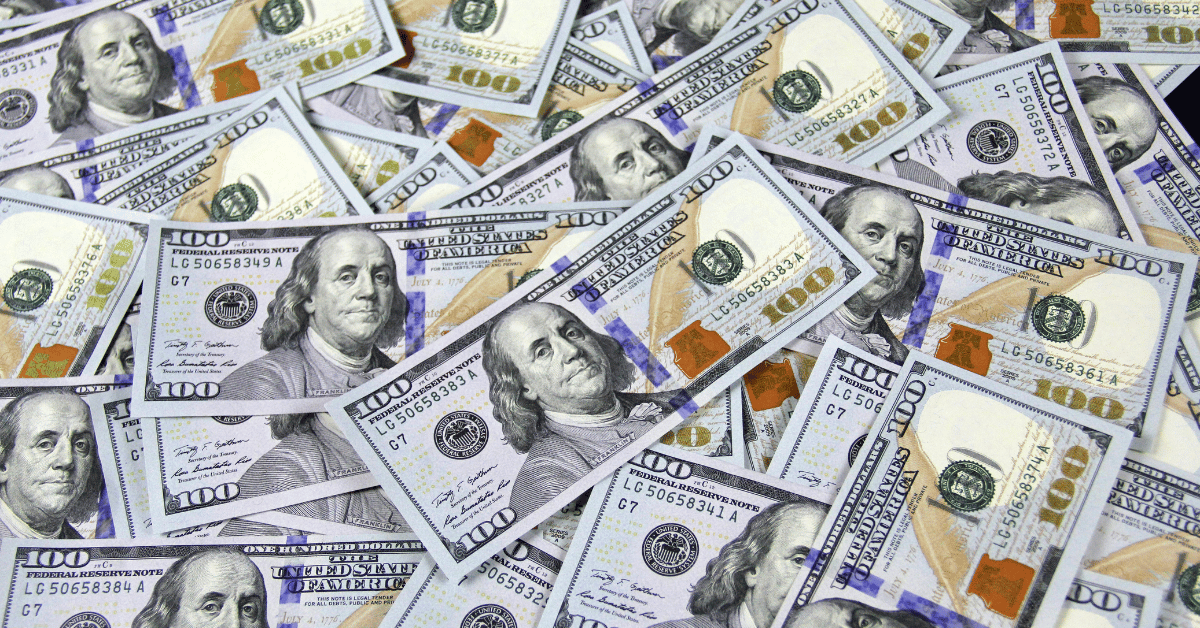Delta-8 THC vs Delta-9 THC: How Do They Differ?

May 2 2021, Published 5:27 p.m. ET
When most people think of THC, they think of delta-9 THC – the cannabinoid that can get you high when smoked, eaten or vaped. However, delta-9 is just one form of THC that can be naturally produced in cannabis and hemp plants. So, what are the differences between the cannabinoids and how could delta-8 be a good choice for you? Read on for a simple breakdown of delta-8 THC vs delta-9 THC.
What Is Delta-8?
Delta-8 THC occurs in all cannabis and hemp plants in very small concentrations, with most of the delta-8 THC products available being manufactured from hemp plants. Delta-8 THC is a relative of delta-9 THC (tetrahydrocannabinol), with a similar molecular structure, but with a few key differences. The two share similar properties, like potentially stimulating appetite, reducing pain or aiding in sleep, but delta-8 THC reportedly exhibits a lower psychoactive impact than delta-9 THC.
Delta-8 THC is a minor cannabinoid in hemp and cannabis plants, meaning it is found less abundantly than major cannabinoids like CBD or delta-9 THC. Though research surrounding cannabinoids in general is still fairly new but, on the rise, we do know some major factors that impact how these two variations of THC can impact consumers.
What Is Delta-9?
Delta-9 THC or tetrahydrocannabinol is the cannabinoid most commonly associated with cannabis and marijuana. Don’t confuse cannabis and hemp plants, though they do come from the same family they do have a different cannabinoid structure. It contains psychoactive properties through its interaction with the ECS but has been thought to host a range of potentially therapeutic properties for some consumers. Nonetheless, with its therapeutic properties being used more regularly and widely, delta-9 THC is most known for its ability to get people “high,” there can be some unwanted side effects. Some cannabis users have no adverse side effects, but some have reported increased anxiety or paranoia. Delta-9 may not be right for you, but delta-8 could offer a solution to those unwanted side effects with its decreased psychoactive capabilities.
How Does Delta-8 Make You Feel?
From a biological standpoint, delta-8 THC and delta-9 THC differ mostly due to the location of a double bind in their molecular chain. Delta-8 THC contains the bond on the 8th carbon chain while delta-9 THC has it on the 9th carbon chain. Though this is a small difference in chemical structure, there is an evident difference in how each impacts the body’s endocannabinoid system (ECS). The ECS is a bodily system largely responsible for functions like mood, pain regulation, sleep cycles and more. Delta-8 THC can bind to CB1 receptors within the ECS, but less is known about the bonding with CB2 receptors.
The CB1 receptors in the ECS are thought to regulate the psychoactive effects of THC, so the difference in molecular bond found in delta-8 THC and delta-9 THC is highly relevant for consumers. Users of delta-8 THC have reported similar effects that like of traditional THC, but less amplified. In other words, delta-8 THC could create a desirable middle ground between CBD and traditional THC.
How Is Delta-8 THC Available?

According to the 2018 Farm Bill, hemp cultivated in the United States must have a delta-9 THC threshold of less than 0.3%. This puts the legality of delta-8 in the same classification as CBD products (for now at least). While restrictions may vary state by state, similar to restrictions surrounding Delta-9 THC, currently most Delta-8 preparations are hemp-derived and fall under the legislation of 2018 Farm Bill.
Delta-8 THC is available in a variety of forms and products. One of the most common is through inhalables, from hemp strains to vape products. Delta-8 THC oils, edibles and drinks are also becoming more and more popular. If you are familiar with CBD, you will find many products that are crafted in similar ways, but with a focus on delta-8.
As with any cannabinoid-based product, finding a safe and reliable source is key to reaping the benefits of a delta-8 THC product. Relying on third party lab test results is the best way to ensure you are getting a quality product that is not only safe and effective, but also within the legal parameters of delta-8 and delta-9 THC.
If you are curious about trying out delta-8 THC, sometimes referred to as “diet weed” or “cannabis light,” turn to Real Tested CBD and our independent lab test results and product reviews. We test for purity, potency and overall quality, ensuring you are getting what you want out of your delta-8 purchase. To check out our Best Delta-8 Products Category, click here.


